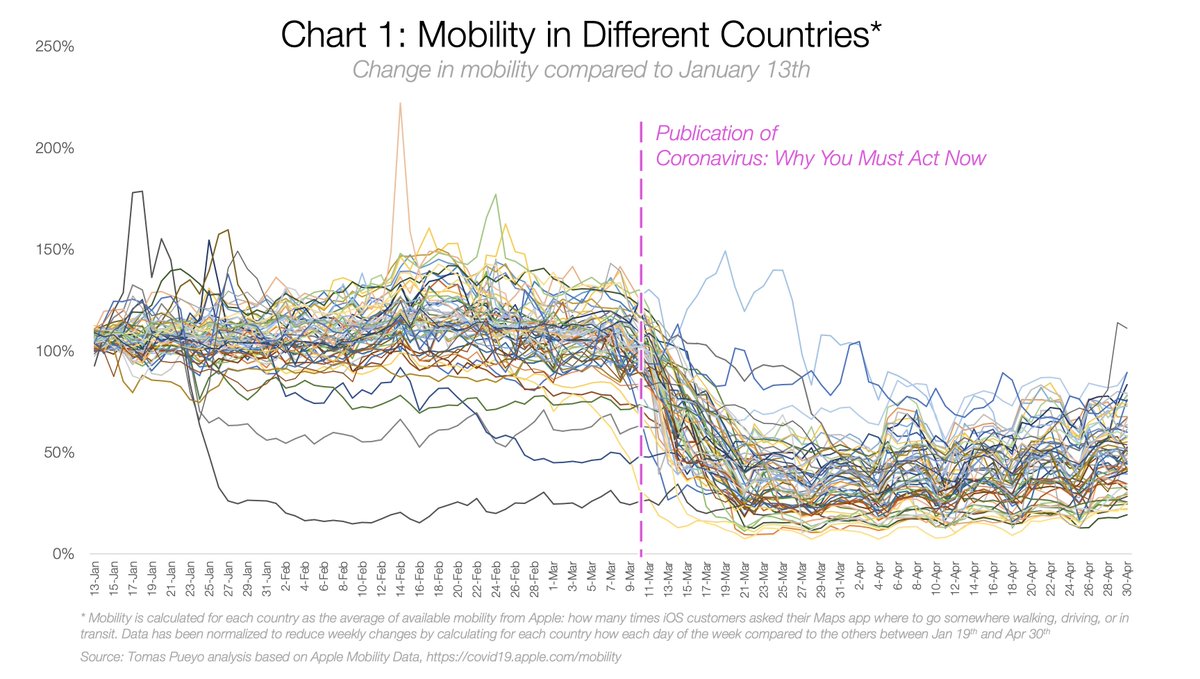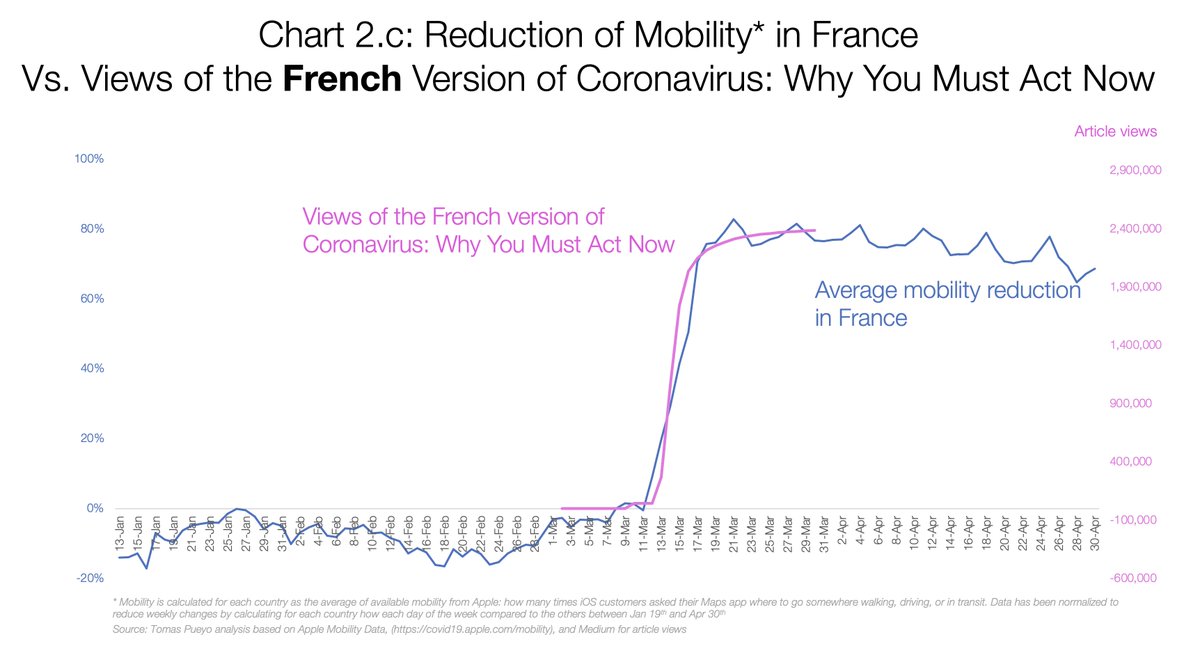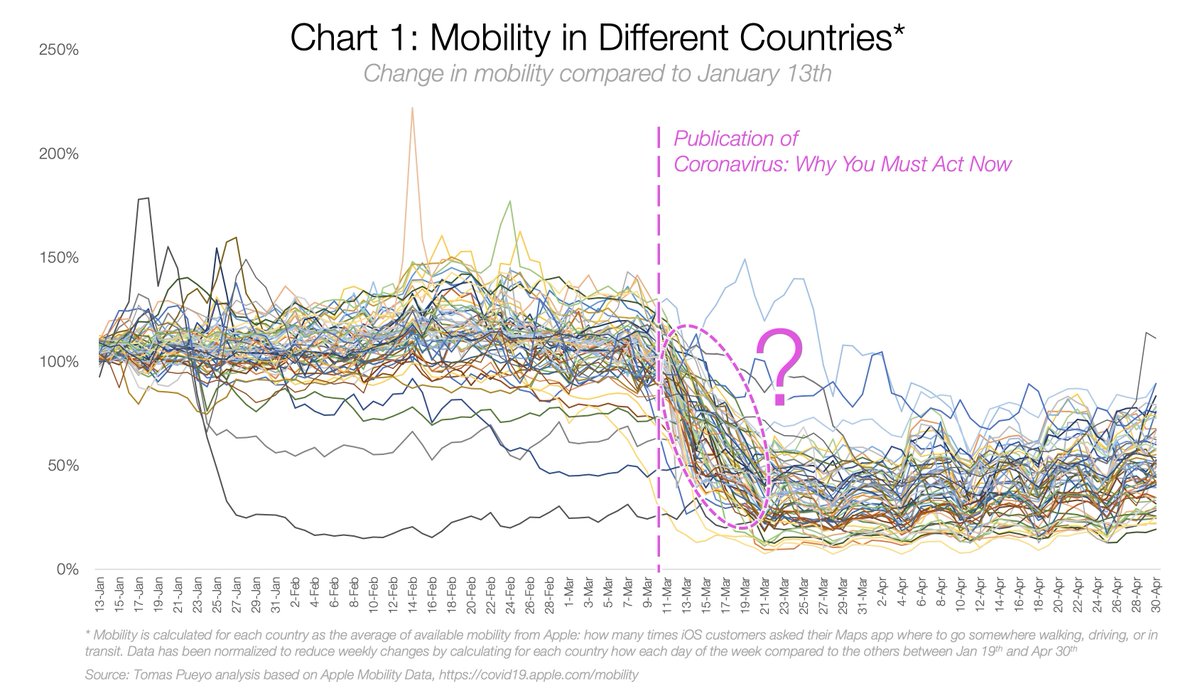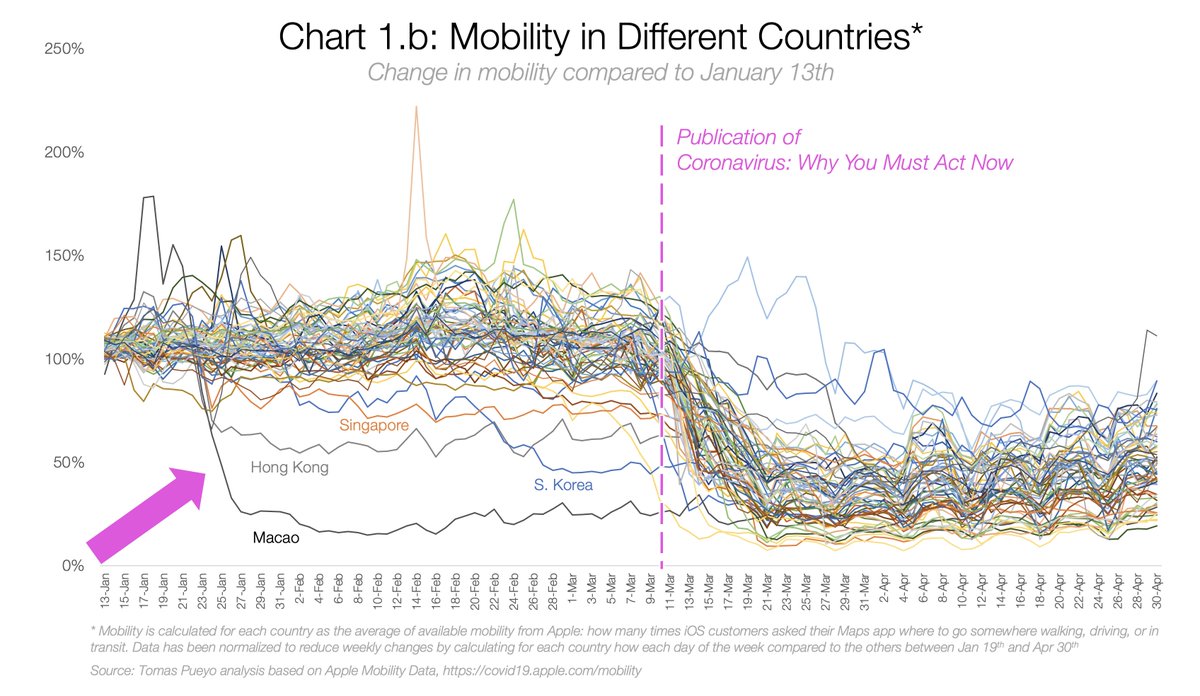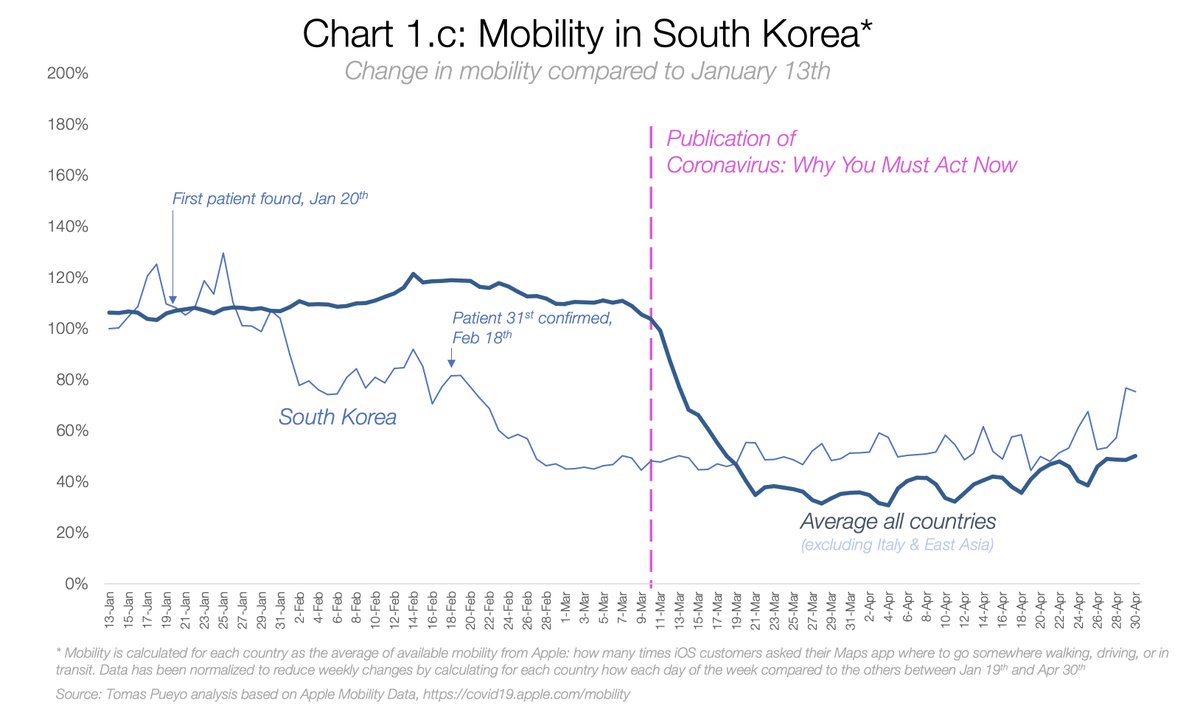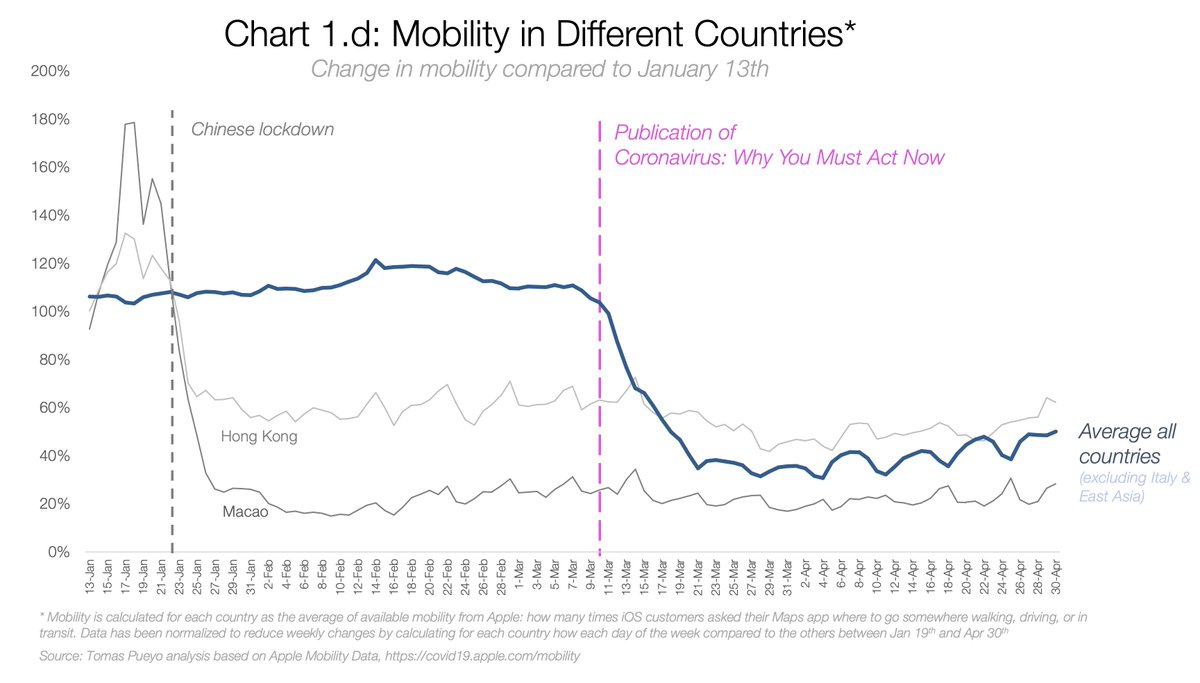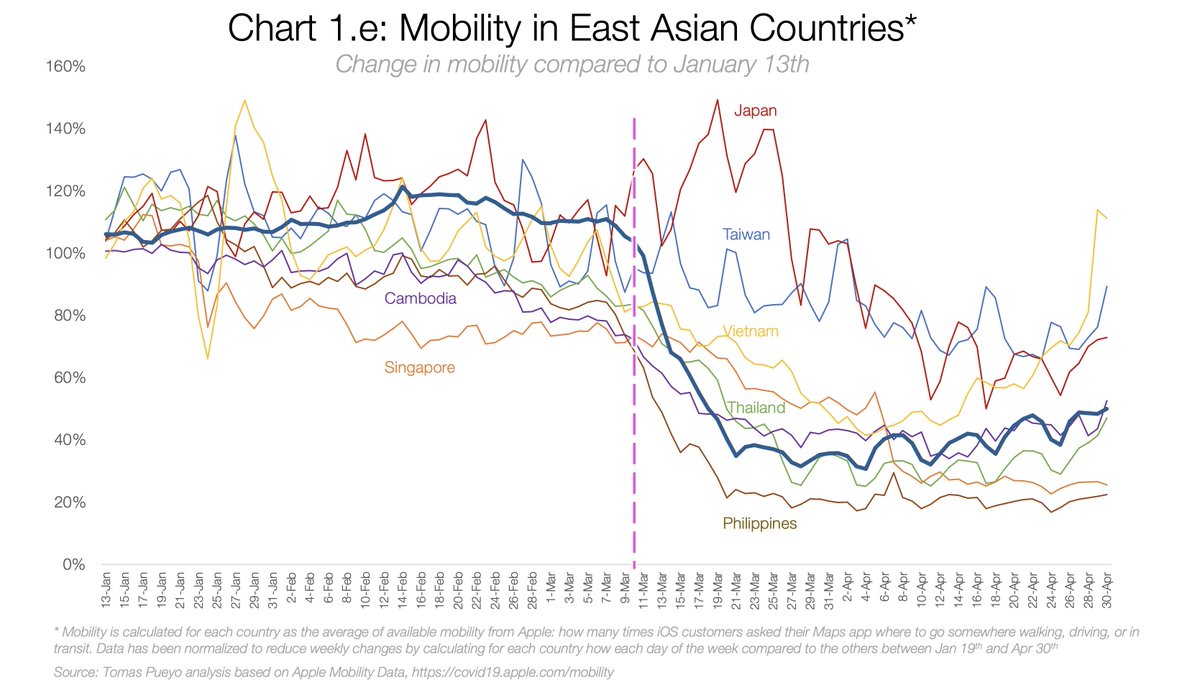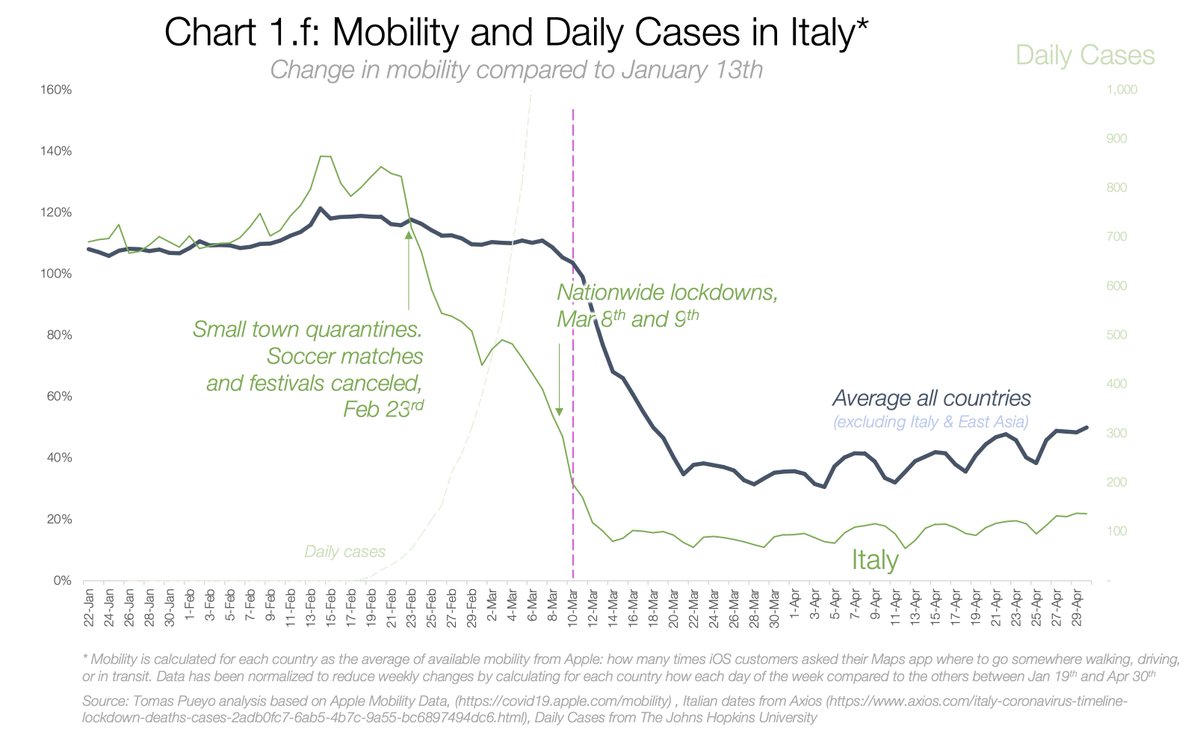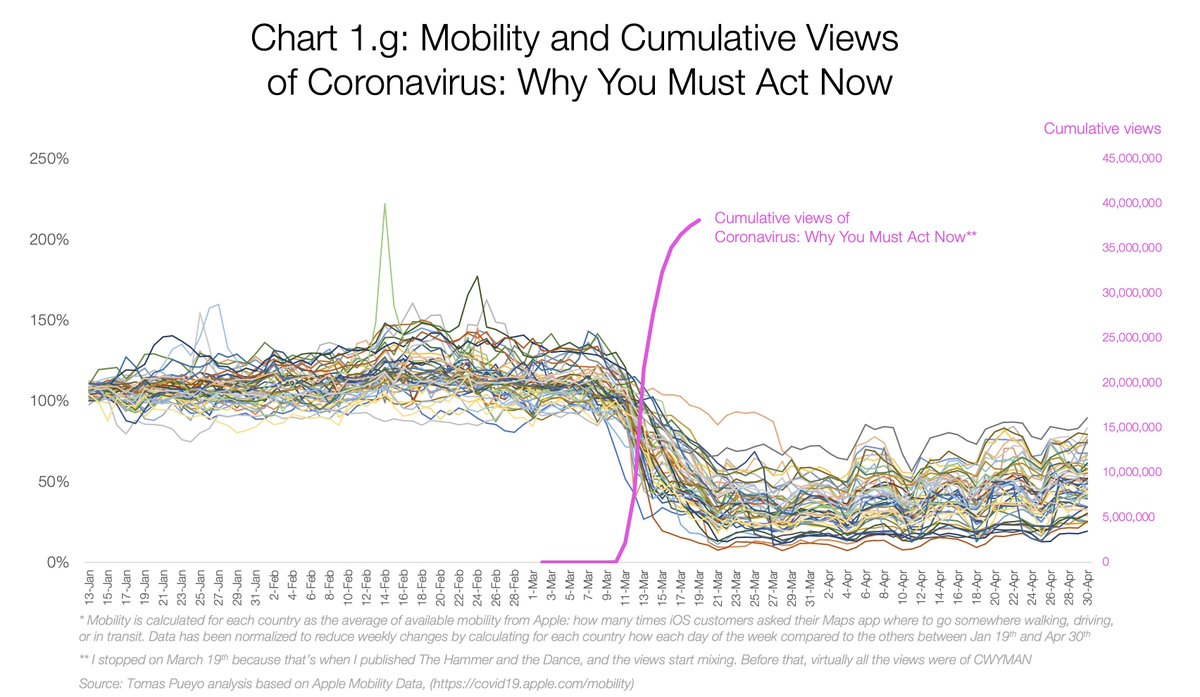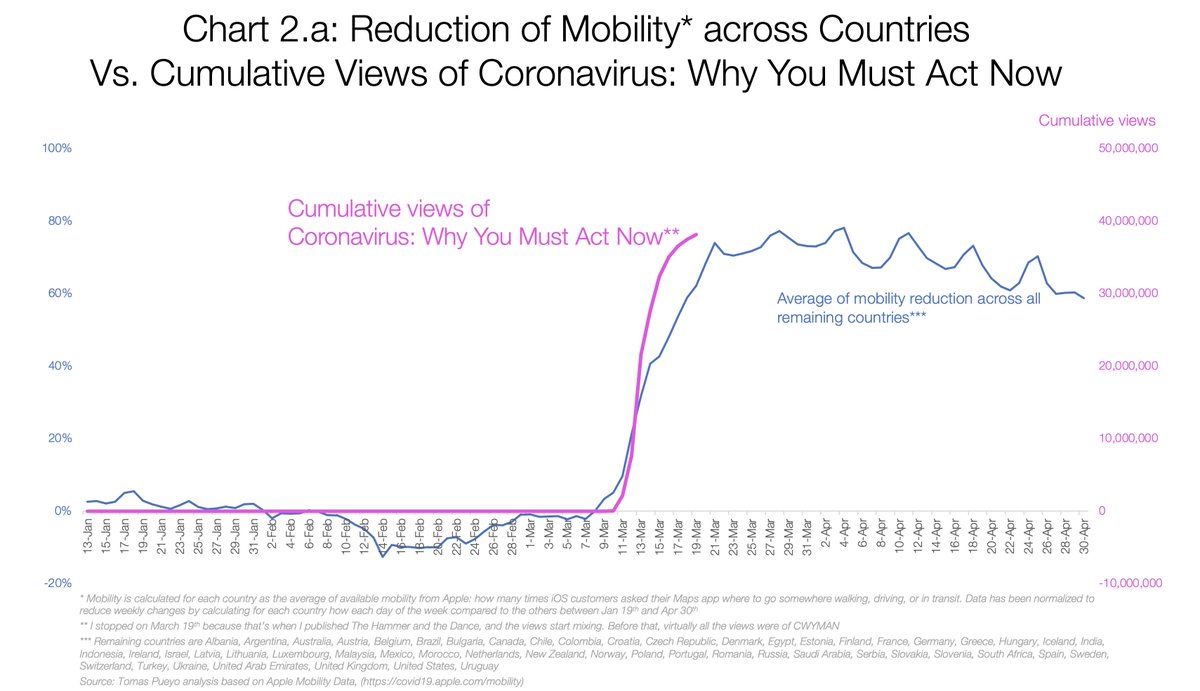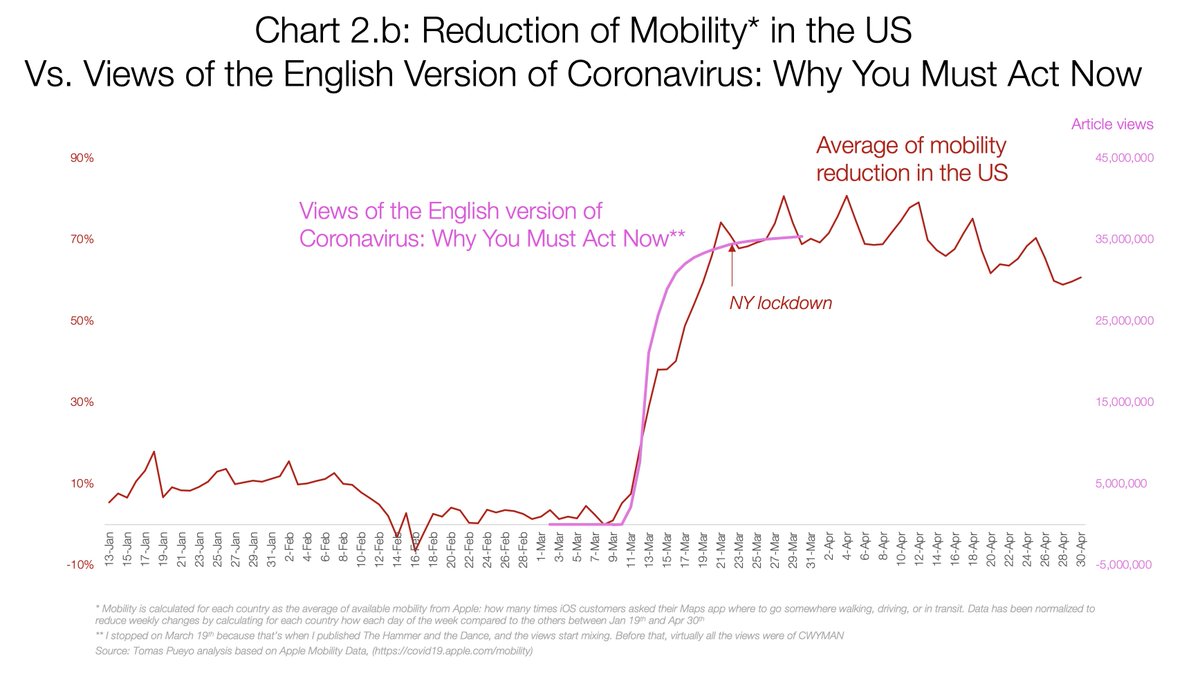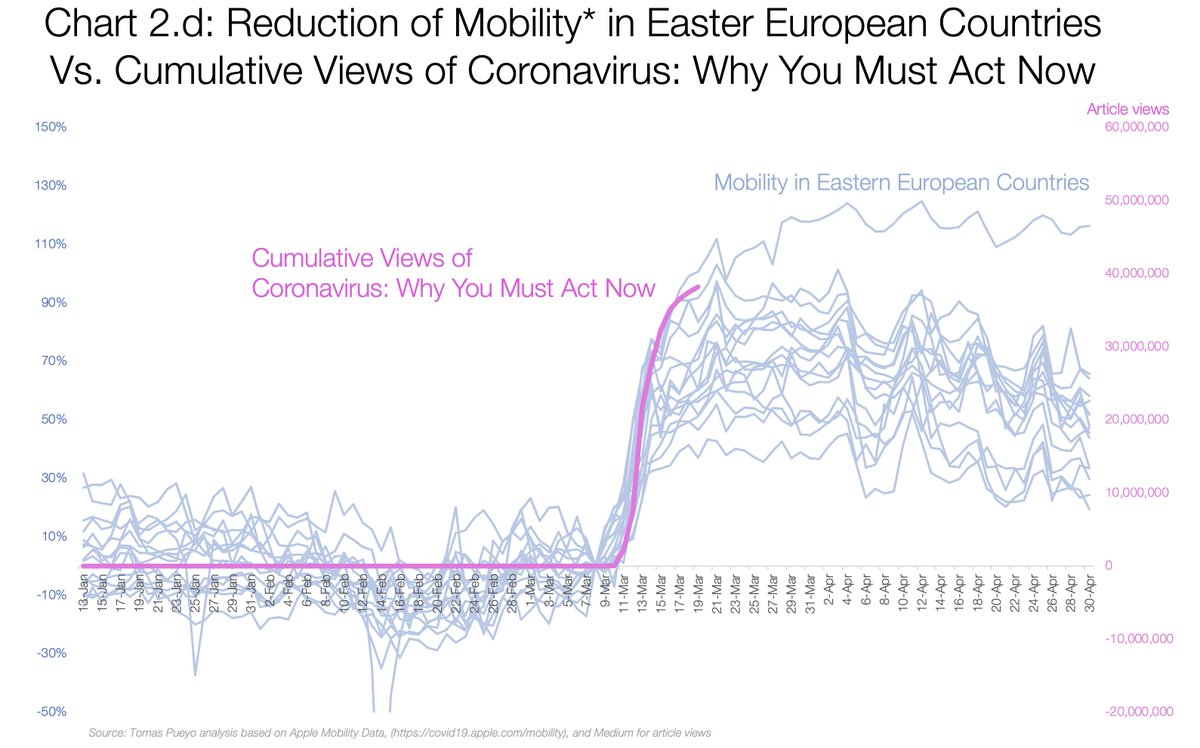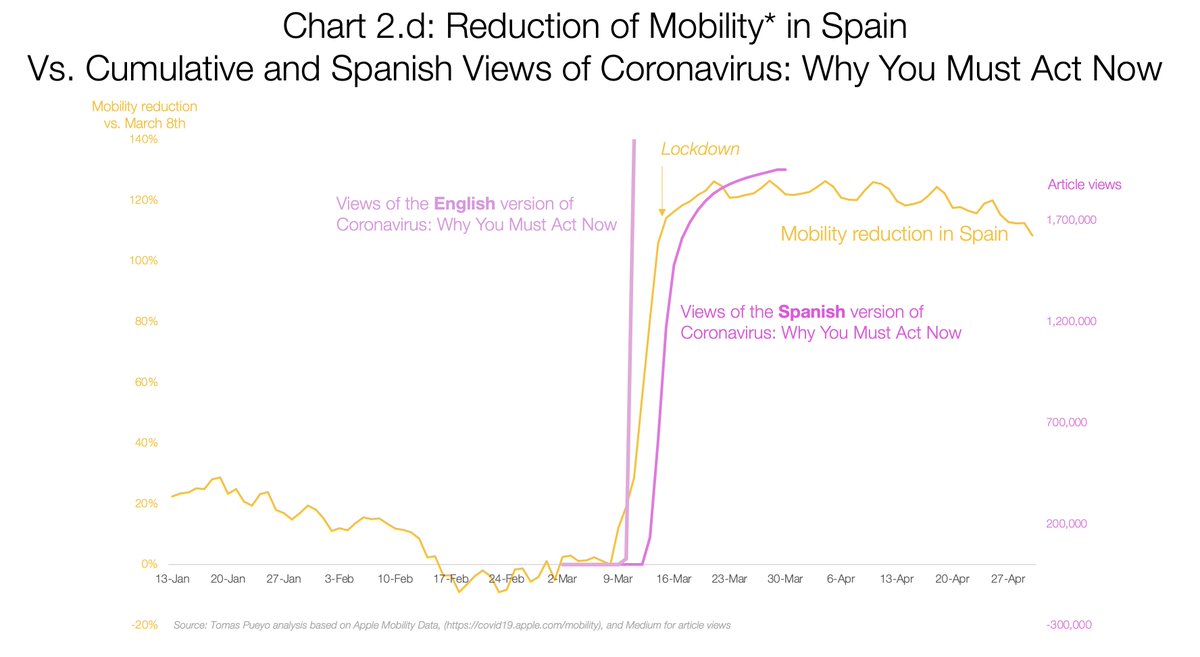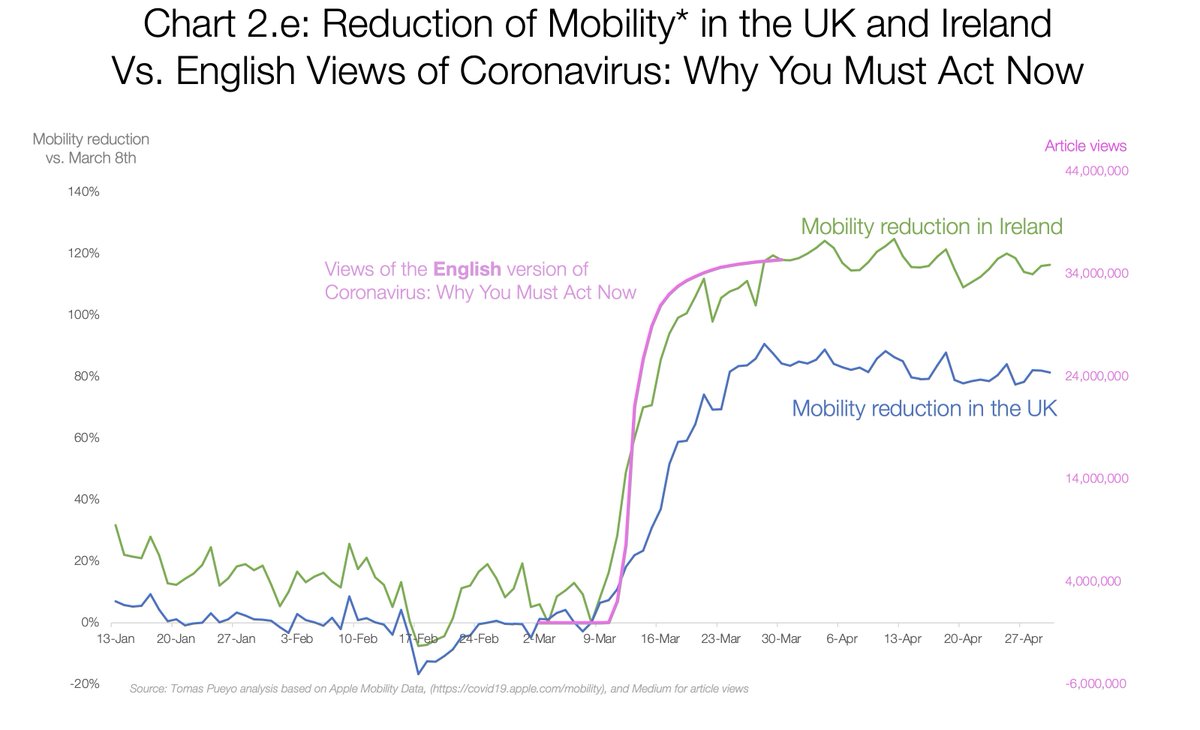What was the impact of the article Coronavirus: Why You Must Act Now?
Now that 2020 is ending (finally), and that Medium has published it was its most read article of 2020, I wanted to look back to those few days in March.
What happened?
https://medium.com/creators-hub/2020-by-the-numbers-473c8bf52207
Now that 2020 is ending (finally), and that Medium has published it was its most read article of 2020, I wanted to look back to those few days in March.
What happened?
https://medium.com/creators-hub/2020-by-the-numbers-473c8bf52207
Just as over 40 million people were reading the article worldwide, mobility was going down.
So I wondered: Was it perfect timing?
Or did it actually... contribute?
So I wondered: Was it perfect timing?
Or did it actually... contribute?
We will never know for sure. But are there clues in the data?
I never really focused on it, but then it hit me: The timing per country.
We can see mobility going down in several regions much before the article. Mostly in China's neighbors and Italy.
I never really focused on it, but then it hit me: The timing per country.
We can see mobility going down in several regions much before the article. Mostly in China's neighbors and Italy.
How did these countries react to different situations?
- South Korea had an outbreak
- China had an overnight lockdown with barely any warning
- South-East Asia knew what to expect thanks to their experience with SARS and MERS.
- Italy had an outbreak and then a lockdown.
- South Korea had an outbreak
- China had an overnight lockdown with barely any warning
- South-East Asia knew what to expect thanks to their experience with SARS and MERS.
- Italy had an outbreak and then a lockdown.
From SK, we can see what an outbreak does to a country that took the virus seriously: Without the authorities mandating anything, people started reducing their mobility as the news came.
There's no sudden drop. Just gradual.
There's no sudden drop. Just gradual.
From China (Macao and Hong Kong), we can see what a lockdown does before there's much warning. Sudden drop.
Countries that were concerned but never really had an outbreak had gentle slopes in mobility reduction — or nothing at all.
Italy is interesting. We see a reduction in mobility starting on February 23rd due to the fear from a local lockdown. It stabilizes and dips again a couple of days before a national lockdown, as cases were soaring. The lockdowns further reduced mobility (maybe).
3 weeks total
3 weeks total
What do we learn from all of this?
- The biggest influence on mobility was people's perception of danger
- Countries are mostly independent from each other. Their citizens behaved according to local news
- It usually takes a bunch of time for news to sink in
- The biggest influence on mobility was people's perception of danger
- Countries are mostly independent from each other. Their citizens behaved according to local news
- It usually takes a bunch of time for news to sink in
How does that change AFTER the publication of Why You Must Act Now?
Showing mobility and cumulative views is weird because one goes up and the other down. Also, there's too many countries.
So let's simplify.
Showing mobility and cumulative views is weird because one goes up and the other down. Also, there's too many countries.
So let's simplify.
If you take the average of mobility for all countries and invert it to show REDUCTIONS in mobility (instead of actual mobility), this is what you see.
Now let's look at the US. Remember, on March 10th, there was no big known outbreak in the US. It would take 12 more days for NY to lock down. And yet there's a perfect correlation between mobility reduction in the US and views of the article.
Something even more interesting happens in France.
The French don't speak much English. So let's look at how mobility changed with the FRENCH version of the article, published on March 13th.
At the time, France didn't know it had an outbreak. The lockdown was on Mar-16.
The French don't speak much English. So let's look at how mobility changed with the FRENCH version of the article, published on March 13th.
At the time, France didn't know it had an outbreak. The lockdown was on Mar-16.
In most of Eastern Europe, there were very few infections at the time, and even fewer known cases. So most countries were not about to reduce their mobility.
Yet in most of them, in unison, people start staying home.
Yet in most of them, in unison, people start staying home.
Remember how this happened in Italy: It took 3 weeks, and it was independent from all other countries.
Here, it's all countries, in 5 days, starting when the article is published, growing with it, and despite few local cases.
Here, it's all countries, in 5 days, starting when the article is published, growing with it, and despite few local cases.
In Spain, on March 8th cases were mounting rapidly. The government was denying any problem, but people started reducing their mobility regardless.
The explosion started at the same time as the English version of the article and continued with the Spanish version.
The explosion started at the same time as the English version of the article and continued with the Spanish version.
This one is a bit trickier. How would have mobility reduced without the article? We will never know. Maybe exactly the same. Or maybe more like Italy, which took 3 weeks instead of 5 days. But by the time the lockdown was applied, mobility had already fallen.
Ireland and the UK offer more information.
It seems like mobility reduction started around the time of the article or slightly earlier in Ireland, but not in the UK.
It seems like mobility reduction started around the time of the article or slightly earlier in Ireland, but not in the UK.
The UK never reduced mobility as much.
Famously, the UK government dragged its feet locking the country down, attempted a herd immunity strategy until a week after the article, and was wishy-washy afterwards.
Famously, the UK government dragged its feet locking the country down, attempted a herd immunity strategy until a week after the article, and was wishy-washy afterwards.
It will be impossible to know the true impact of the article.
What we know: Before the article came out, ppl reacted slowly and to local news only.
Suddenly, with the article, that changes: Mobility plummets everywhere at exactly the same time as ppl were reading the article.
What we know: Before the article came out, ppl reacted slowly and to local news only.
Suddenly, with the article, that changes: Mobility plummets everywhere at exactly the same time as ppl were reading the article.

 Read on Twitter
Read on Twitter